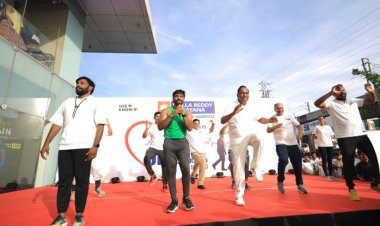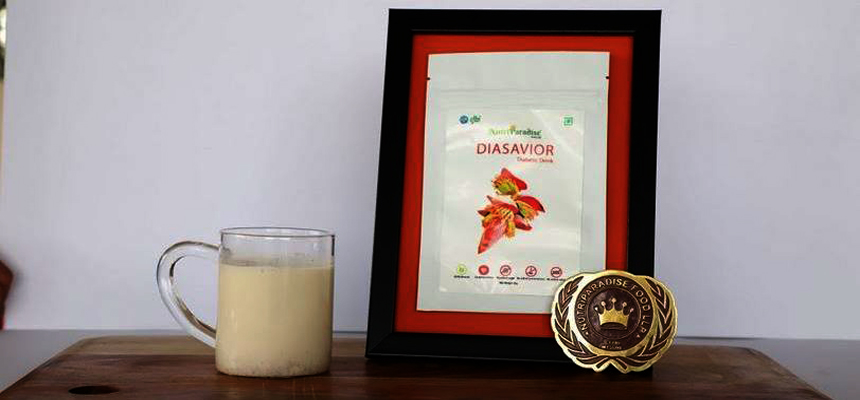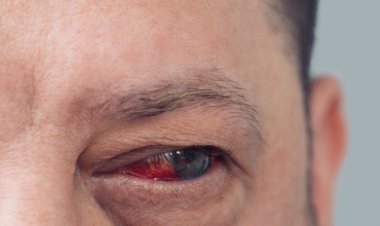World Stroke Day: Understanding Stroke and How to Prevent It World Stroke Day 2024 focuses on leveraging the impact of sports to promote stroke awareness and motivate individuals to lower their risk of strokes on a global scale under the theme

#GreaterThanStroke. World Stroke Day falls annually on October 29th with the goal of educating the public on strokes and how to prevent them. Dr. Rohit Kumar Bandari MBBS, MD, DM (Neurology), MRCP (SCE) Consultant Neurologist of Mallareddy Narayana Hospital talks in-depth about stroke for more awareness on World Stroke Day.
What is a Stroke?
A stroke happens when the blood flow to part of the brain is cut off, either by a blocked or ruptured blood vessel. Without the necessary oxygen and nutrients, brain cells begin to die, which can lead to lasting damage or even death. It’s a medical emergency, and getting help quickly is essential.
Types of Strokes:
There are three main types of strokes:
• Ischemic Stroke: The most common type, this happens when blood vessels in the brain become blocked or narrowed, reducing blood flow.
• Haemorrhagic Stroke: This occurs when a blood vessel in the brain bursts, causing bleeding in or around the brain.
• Transient Ischemic Attack (TIA): Also known as a "mini-stroke," it’s caused by a temporary blockage that doesn’t lead to permanent damage. However, it’s a warning sign of a future stroke.
Recognizing Stroke Symptoms
Recognizing the signs of a stroke and getting help fast can make a big difference in recovery. Use the acronym BEFAST to spot stroke symptoms:
B: Balance issues or sudden loss of coordination.
E: Eyesight trouble, like blurred or loss of vision.
F: Face drooping on one side when smiling.
A: Arm weakness or difficulty raising one arm.
S: Speech problems, like slurred words or trouble understanding speech.
T: Time to get medical help immediately if you notice any of these signs.
Stroke Risk Factors and Prevention
Almost 80% of strokes can be prevented by understanding and managing risk factors. These factors can be divided into two categories:
Non-modifiable Risk Factors: These include age, gender, ethnicity, and family history. You can’t control these, but knowing your risk helps you take preventive action.
Modifiable Risk Factors: These are factors you can control to lower your risk:
• High Blood Pressure (Hypertension): This is the leading cause of stroke. Keeping blood pressure in check is crucial.
• Tobacco Use: Smoking damages blood vessels and increases stroke risk. Quitting smoking reduces the risk significantly.
• Physical Inactivity: Regular exercise (at least 30 minutes a day) lowers stroke risk by improving overall heart health.
• High Cholesterol: A diet low in bad cholesterol (LDL) helps prevent artery blockages that lead to stroke.
• Diabetes: Managing blood sugar levels helps prevent stroke as diabetes can damage blood vessels.
• Alcohol Consumption: Drinking too much alcohol raises stroke risk. Limiting alcohol intake helps lower this risk.
Mental Health and Stroke
Chronic stress and poor mental health can also increase stroke risk. Long-term stress can harden the arteries and blood vessels, which increases the chance of stroke.
Stroke Treatment and Recovery
If you suspect someone is having a stroke, getting medical help quickly is essential. Special treatments, such as clot-busting drugs, can improve recovery if given within a few hours of symptoms starting. The sooner treatment starts, the better the chances of recovery.
Rehabilitation
After a stroke, rehabilitation is important to help regain function and independence. Starting rehab as soon as possible can prevent permanent disability and improve overall recovery.
Conclusion
On this World Stroke Day, let’s commit to reducing stroke risk by staying informed and making healthy choices. If you or someone you know experiences stroke symptoms, don’t wait, seek immediate medical help. Mallareddy Narayana Hospital offers expert stroke care, from prevention to emergency treatment and rehabilitation. Visit us today to learn more about how you can stay stroke-free and live a healthier life!

Dr. Rohit Kumar Bandari - MBBS, MD, DM (Neurology), MRCP (SCE)
Mallareddy Narayana Multispeciality Hospital)

 Disclaimer: Welthi.com does not guarantee any specific results as a result of the procedures mentioned here, and the results may vary from person to person.
Disclaimer: Welthi.com does not guarantee any specific results as a result of the procedures mentioned here, and the results may vary from person to person.









